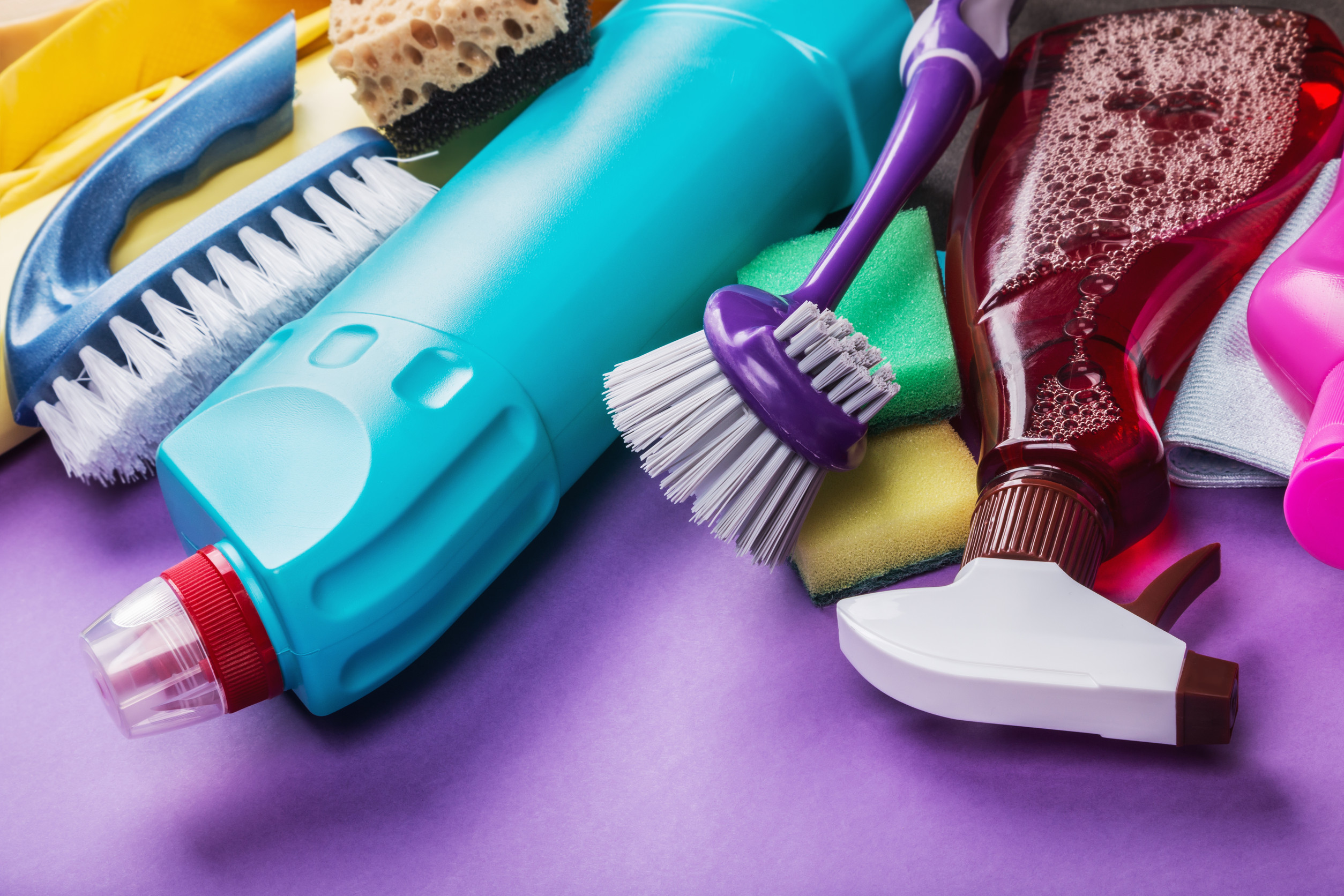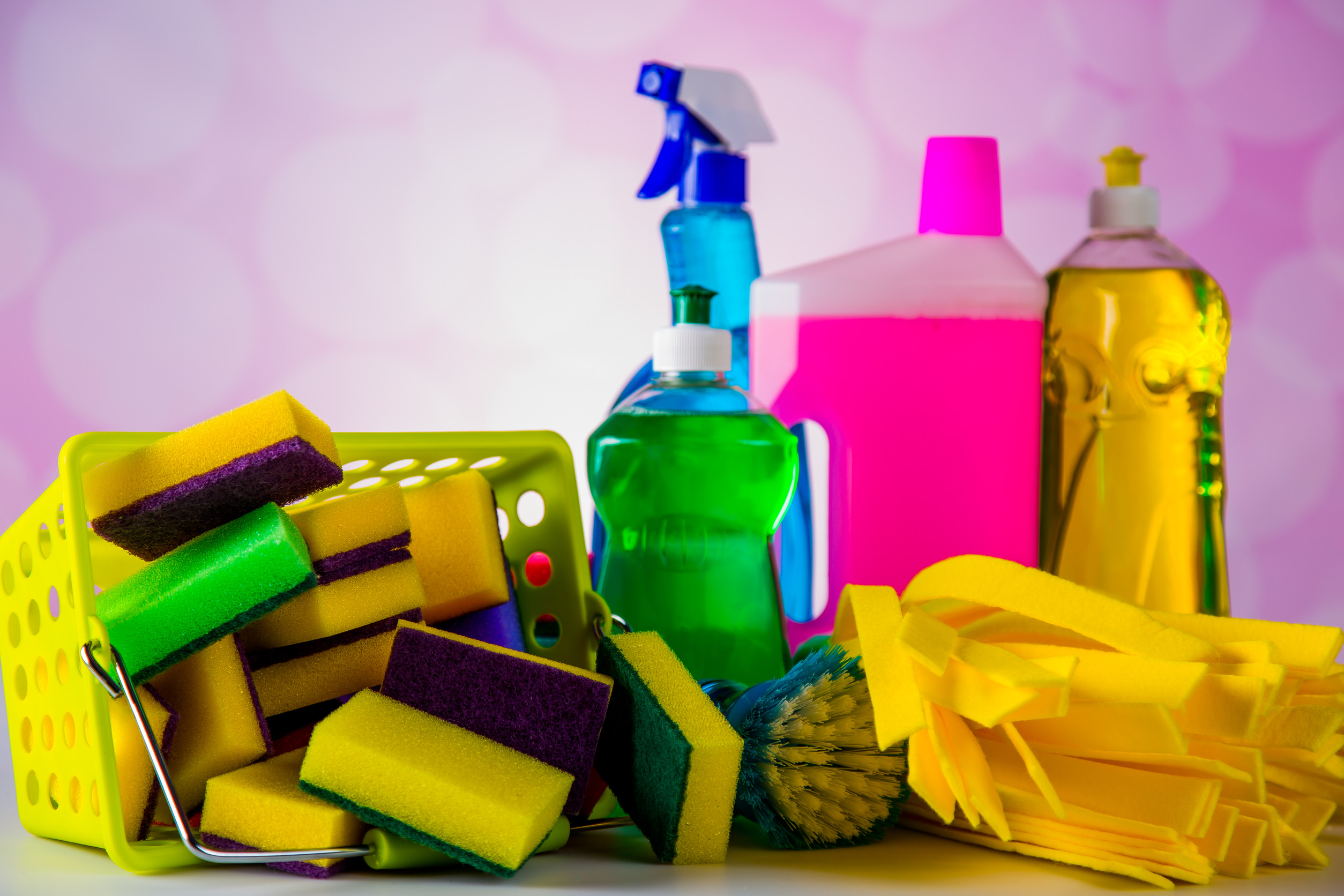You’d expect recalled cleaning products to vanish fast—but shockingly, many still pop up for sale online. Buying a recalled cleaner isn’t just bad luck—it can expose you and your home to bacteria, toxins, or broken parts. By knowing which products were recalled (and why), you can avoid hidden hazards and get your money back. We break down 10 commonly recalled cleaning items that remain in circulation—and what you can do about them. Let’s dive in and help you clean safer.
1. Fabuloso Multi‑Purpose Cleaners
In February 2023, Colgate‑Palmolive recalled millions of Fabuloso cleaners after preservative issues allowed bacterial growth, including Pseudomonas aeruginosa. The recall included popular scents like Lemon, Lavender, and Passion Fruit. Yet you can still find them on Amazon and major retailers. To stay safe, check lot codes listed on the official recall page, and return affected bottles for full refunds. Always verify before trusting your usual cleaner.
2. Pine‑Sol Scented Multi‑Surface Cleaners

Image Source: 123rf.com
Clorox and Pine‑Sol recalled certain scented Pine‑Sol cleaners (Lavender Clean, Sparkling Wave, Lemon Fresh) due to potential bacterial contamination. The products affected were bottled through September 2022 and can still be found on resale platforms. Bacteria like Pseudomonas can pose risks to immunocompromised individuals. Check date codes starting with “A4” and get refunds via Pine‑Sol’s website. Don’t assume that because it’s on sale, it’s still safe.
3. Woolite Delicates Laundry Detergent
Earlier this year, over 16,000 bottles of Woolite Delicates detergent sold on Amazon were recalled for possible Pseudomonas contamination. The recall targeted lot codes S24364, S24365, and S24366. Though no injuries have been reported yet, exposure may pose serious infection risks, especially with compromised immune systems. Consumers must mark their bottles “Recalled,” photograph the UPC and lot code, email for refunds, and then dispose of them unopened. If you’re still stocking your laundry room, double-check before washing.
4. Wet & Forget “Xtreme Reach” Nozzle
Wet & Forget’s hose-mounted nozzle was recalled in December 2023 due to the risk of detachment during spray, posing skin and eye injury hazards. Even though the product has been off many brick-and-mortar shelves, online listings still sell it. The remedy involves a free replacement nozzle from the company. If your kit includes this nozzle, discontinue its use until you’ve fitted the safety update. Safer spraying starts with safe tools.
5. Aromatherapy Room Sprays (Walmart)
In October 2021, Walmart recalled around 3,900 bottles of aromatherapy room spray due to dangerous bacterial contamination. The CPSC noted that the bacteria could cause rare but serious infections. Despite this, these sprays can still be found on resale or marketplace sites. If you find a bottle online, return it or safely throw it out, unopened. Air freshening shouldn’t come with health risks.
6. Shampoo & Conditioner Sprays (Pantene, Herbal Essences)
In late 2021, Procter & Gamble recalled dry shampoo and conditioner sprays from brands like Pantene and Herbal Essences due to benzene—a known carcinogen—detection. Though primarily affecting hair products, some multi-use spray versions also fall under cleaning-product categories. Detergent sections of online stores may still list them. Avoid any aerosol sprays from those lot codes and reach out for refunds. Mistaking a last-minute scrub for a dangerous exposure is no clean sweep.
7. Detergent Pod Packaging (Tide, Gain, Ace, Ariel)
P&G recalled 8.2 million flexible film bags containing laundry pods due to packaging flaws that pose child safety risks in April 2024. While the pods themselves weren’t directly contaminated, the defective bags allowed accidental access by children. Search your pantry and online storage for recalled bags—comments surfaced showing people still discovering them in orders. Replace bags and report defects rather than risking accidental ingestion.
8. Potentially Bacterially Contaminated Pine‑Sol via Pine‑Sol & CloroxPro Sites
Beyond the initial Pine‑Sol recall, some CloroxPro Pine‑Sol products also remain listed online and physically unsold in local stores. Use the same date and UPC checks above to identify at-risk products. Bacterial risk is comparable, even when seen on eBay or clearance. Take heed when opting for deep-cleaning value packs.
9. Generic Multi‑Purpose Cleaners with Batch Code Gaps

Image Source: 123rf.com
Countless store-brand or lesser-known multi-purpose cleaners lack transparent batch codes online. Without visible codes, there’s no way to know if a product bypassed contamination problems that triggered recalls. Always look for manufacturing info on bottles before committing to a purchase. If you can’t verify safety lineage, skip the scrub. Unlabeled bulk cleaners could be hiding hazards.
10. Disinfectant Wipes with No Verified Batch Recall Info
Many disinfectant wipes are marketed as sanitized, but some cleaning organizations, like the 3M recall, aren’t removed from online warehouses. Some unlabelled batches may still slip past sellers. If in doubt, check manufacturer websites for recall notices before restocking wipes. Relying on wiping to protect you doesn’t work if those wipes themselves are flawed.
Clean Smart, Stay Safe
Even if purchases come from “trusted” online sellers, cleaning products may be unfit for use, or worse, unsafe. Always match UPC and batch codes to recall pages before tossing items in your cart. File refunds on proof-of-purchase via manufacturer forms, and report suspicious listings. Clean homes deserve clean safety—don’t cozy up to hidden hazards.
Have you discovered any recalled cleaning products still listed online? Share your experience in the comments to help others stay informed!
Read More

